
In the introduction, before the film was screened, Ms Cagla Zencirci made it abundantly clear that Noor was a work of pure fiction, a fantasy. It was not a documentary about cross-dressers as such, but the story of an essentially gentle soul, who was desperately trying to find his place under the sun. She also pointed out that she was interested in exhibiting the real image of Pakistan and not the portrait that foreigners are accustomed to being shown, which displays the country’s ugly side as a land of genetic disorders, of intolerance, of terrorism with all the crass and shaming layers of wrong. I was particularly impressed by the languor of the camera work, which captured some of the indescribable beauty of the Northern Areas, which the majority of the audience had never seen. I was also touched by the professionalism displayed by the actors who were all amateurs. There were no cornball cliches. Not a single person appeared flustered or ill at ease in front of the camera. He was just himself.

The plot is straight forward. Beautiful young man (BYM), when not dancing, makes a living selling tea to truckers. One night, a horny drunk trucker tries to abuse BYM. In the scuffle BYM kills the trucker, hops into his truck, and drives away into an unknown future. Discovers money under seat, has breakfast next morning at a roadside cafe. Nosy truckers fire questions, suspect the truck with Rawalpindi number plates is stolen, run to fetch the police. BYM jumps into the truck, evades pursuers, drives into wilderness. In glare of headlights, BYM sees a single woman fleeing a male pursuer. BYM offers outstretched hand and pulls the woman to safety. Later, when the woman is asleep, BYM plays utter cad. The woman, full of anger, escapes, flees into the eerie night. BYM searches for her in vain. Finally, finds her dancing at the shore of a lake of fairies dressed in angelic white. Profusely apologises for behaviour. Is finally forgiven. Friendship, understanding and trust develop. Confidences are exchanged. BYM asks the woman, who is a professional dancer, to teach him Kathak, so he can earn enough for two. She obliges. The film ends. The audience gives generous applause. I am counting on this film making an impact in Cannes.
Published in The Express Tribune, November 23rd, 2014.
Like Opinion & Editorial on Facebook, follow @ETOpEd on Twitter to receive all updates on all our daily pieces.


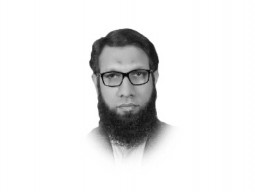
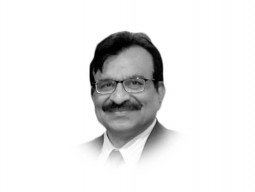
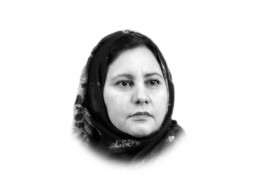



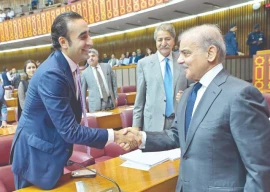
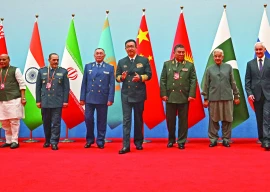
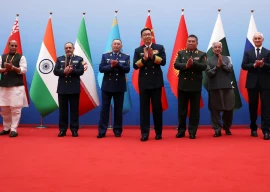
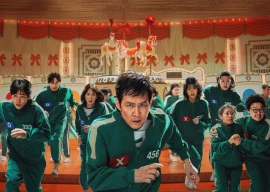




COMMENTS
Comments are moderated and generally will be posted if they are on-topic and not abusive.
For more information, please see our Comments FAQ